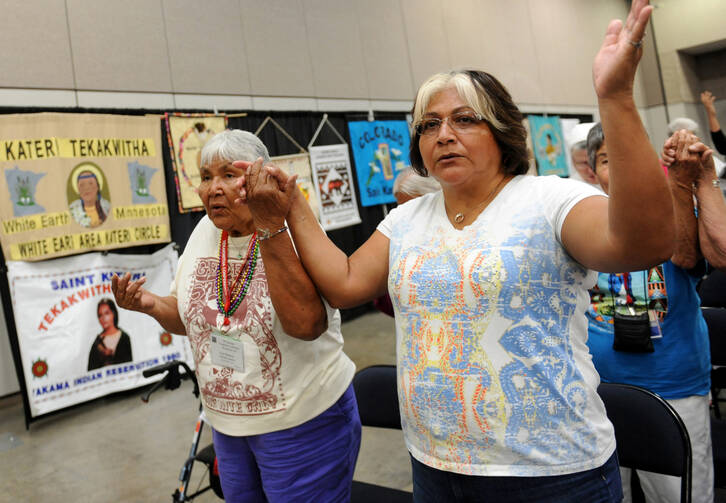The Nigerian priest Benedict Chidi Nwachukwu-Udaku, V.F., pastor of Sacred Heart Church in Rancho Cucamonga, Calif., tells the story of the day he tried to bring a tradition from home into an American liturgy. “I was celebrating our monthly Mass with healing prayers,” he recalls. “I decided to sing a chorus at the elevation of the sacred species, which is a normal practice at charismatic liturgies in Nigeria.”
It did not go over quite as he expected. “I got an email asking me to explain why I should sing at [the] consecration.”
Elsewhere one hears complaints about priests who are hard to understand, as well as honest admissions by American and foreign-born priests and staff members about their struggles to minister to other cultures, in other languages. If you were to do a survey of American Catholics about issues in their parishes, chances are high that questions related to diversity would be at the top among them. According to a study by Georgetown University’s Center for Applied Research in the Apostolate in 2014, 25 percent of the Catholic clergy in the United States today—over 6,500 priests—come from other cultures, with their own traditions, expectations and issues.
Within parish communities, too, there are challenges, as the traditions and expectations of different cultural groups are negotiated, often without much discussion or reflection. Instead of one community of faith, in many parishes there is fragmentation—the “main” congregation and “the Spanish Mass,” “the Vietnamese retreat.”
In this area of cultural diversity, the Diocese of San Bernardino finds itself at the cutting edge. In addition to Native Americans, different Spanish-speaking groups, Anglo-Americans and African-Americans, the diocese also includes populations of Vietnamese, Indonesians, Igbo-speaking Africans, Filipinos, Tongans, Samoans, Guamanians and other Mariana Islanders, Koreans and Arabic speakers. Most of its active priests are foreign-born, and only a handful of its seminarians are of European descent. All but four of its 91 parishes have Mass in Spanish.
But instead of seeing that diversity as an obstacle, Bishop Gerald Barnes, like his predecessor, Bishop Philip Straling, looks on it as an asset. “From the get-go,” explains John Andrews, the diocesan director of communications, “we’ve wanted to wear that as a badge, a strength, a blessing. So any time we have an opportunity to understand that better, we take it.”
In that spirit, in 2011 the diocese began participating in Building Intercultural Competencies for Ministers—a five-part series of workshops developed by the U.S. Conference of Catholic Bishops to enable dioceses and other Catholic institutions to understand better and capitalize on the cultural dynamics within their communities.
“Why did the Titanic sink?” asks Maria Muñoz-Visoso, executive director of the U.S.C.C.B.’s Secretariat for Cultural Diversity. “Among other things, they miscalculated the size of what was under the water.” B.I.C.M., she explains, is meant to help people see beyond what they react to on the surface to the cultural traditions and assumptions that lie underneath—the prioritization of community or efficiency, relationship to authority or unconscious biases.
So far, every parish priest and staff member—an estimated 850 people—has gone through the training, plus the diocesan office’s 150 employees. That’s no small undertaking, especially in this geographically vast diocese.
For those who participated, the value has been undeniable. Father Nwachukwu-Udaku and his staff came out of the experience with a new approach to their parish. “We decided to see our ecclesial community as a family. ‘Sacred Heart, One Family: One Family, Sacred Heart’ is now our modus salutatis [sic],” or way of greeting before the homily, the announcements toward the end of the Mass or at any social function.
For Andrews, a deeper awareness of unconscious prejudices has been a great gift. “With all the terrible stuff that’s been going on nationally with the police, the bishop did a video about racism. ‘I am a recovering racist,’ he said.
“You have to admit these things. We’re a people of faith, but we’re not perfect. We’ve got the same problems as society at large when it comes to race.”
He adds that the B.I.C.M. program “helps you confront those things within yourself. Then you have a choice on whether to try to grow and have the heart that Christ calls you to have.”








